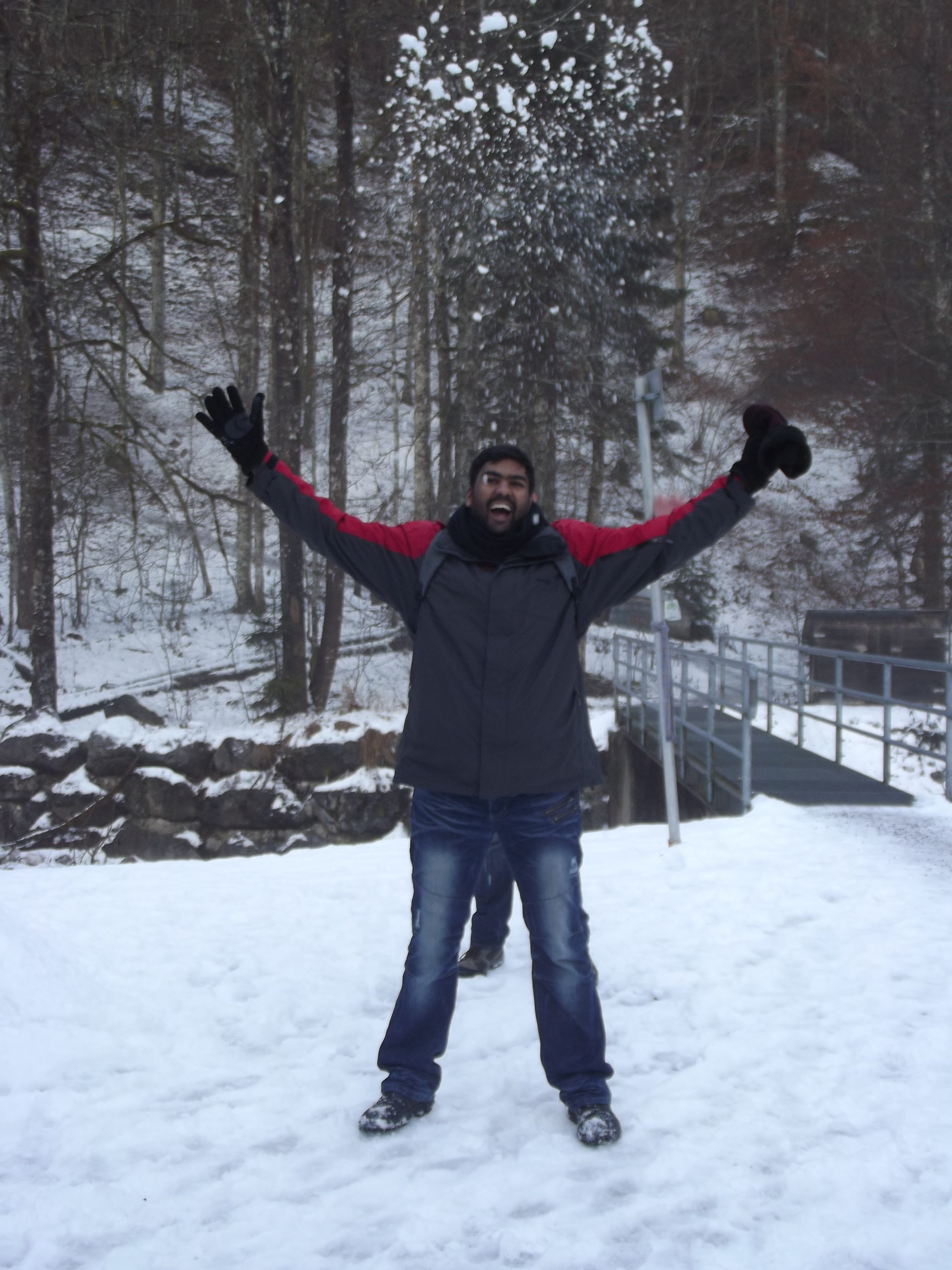Hi there, I’m Thaakir Aricum and I recently went on exchange to TUM Germany. If you’re reading this, it means you have made (or are about to make) one of the best decisions of your life!
Pre-departure:
The three words that best describe this: admin, paperwork and a solid headache… But honestly, it’s worth every bit of effort you have to put in. The application process is quite lengthy and requires a lot of documentation, a video CV, recommendation letters and much more. Luckily the staff at SU International are extremely helpful. Ultimately though, the prep work and running around is your responsibility so make sure you get started ASAP. The visa application in itself is relatively simple, but getting everything that’s needed for the application can be nightmarish. The first thing to consider is time: Your visa takes a minimum two weeks to process and you usually only get confirmation from the university a month before the exchange starts, so the visa application window is pretty narrow. Before you apply for your German visa make sure that you have a recent police clearance, medical aid and proof of funds. If you receive a stipend / scholarship from the University you’ll be visiting, then there won’t be a visa cost (which usually costs around R1000).
Germany has a compulsory medical aid scheme for all its residents. Everyone receives quality health care (equivalent to SA private hospitals) at a cost of around €91 per month for students. You will need a letter from one of the main insurance companies, BARMER, AOK, DAK etc which states that you will be insured with them during your stay. Note: the medical insurance only covers your semester duration, so if you’re planning on heading through a bit earlier to enjoy Octoberfest, then make sure you’re backed up by some travel insurance. The beauty of the medical scheme is it covers you in most of Europe if you decide to do some travelling there, you can go skiing or cliff jumping knowing you’re covered.
The most traumatic experience I had was opening a blocked account while still in South Africa. I was rejected twice (each time costing me R620). In order to open a blocked account, you need to show proof of funds of at least €720 per month for your entire stay, and your bank account statements are not a valid proof of funds. I overcame this by submitting a letter indicating my stipend from TUM and also a letter showing my Bursary from Stellenbosch for my Masters as part of the VISA application. My advice is to either follow this route or get a letter from your parents stating they will cover your costs abroad and their bank statements. However, it is still near impossible to open a German bank account from SA. (Some advice from the German Consulate)
Opening a bank account in Germany was no walk in the park either. I went to every major bank and they refused to open a bank account, even though legally they have to. I met a lovely lady at Deutsche Bank who assisted me and whispered in my ear “it’s because of South Africa and that you’re only here for 6 months” and gave me a bank account. Note that student accounts are absolutely free with no running costs. I will leave the details of the helpful lady at Deutsche Bank with SU International – make sure you ask for it. I explained the situation and she has offered to help any of our students coming to Munich.
For flights, there are many tips online about when to book, it’s up to you. Personally, I only booked once I had confirmation from TUM. If you want to save a few hundred bucks, generally the online agents have the best deals and STA travel does price beating too. Importantly, I would highly recommend getting a flexible ticket for the return flight, paying the few extra hundred now could save you a few thousand in the end.
Europe is very expensive- you’ve been warned! Sitting at a restaurant, a 350ml coke will easily set you back R75, so budgeting is extremely important. With your student visa, you are allowed to work up to 20 hours per week, so picking up a few bar shifts can help if you a bit cash strapped. Since Germany’s minimum wage is €9 € per hour, you’ll earn some decent money on the side.
Lastly, I would very strongly recommend learning a bit of German before you come over. Germany is extremely proud of its language and knowing a few basic phrases will go a long way with winning over the locals 🙂 Personally, I spent some time on the Duolingo app which is a great way of learning.
Experience at the Host University:
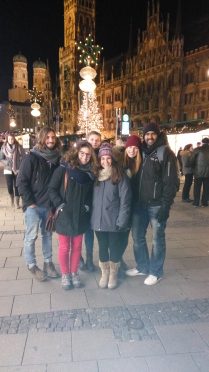
I arrived in Germany a bit early, and looking back I’m extremely glad I did. It allowed me to get all my admin done, such as registering as a resident and seeing the international office staff, before orientation begun. Once orientation starts, you’re going to wait for at least 3 weeks to get an appointment with anyone. Being from Stellenbosch we have the luxury of an all-encompassing Admin A to help us along and while TUM do have an international office, there are thousands of international students each semester. Getting there early also meant I could sign up for all the trips organized by TUMi (which is the fun side of the international office). This is the part where you form the most relationships with people from all over the world and even make some lifelong friends, so it’s safe to say I went to all the events.
At Stellenbosch we’re used to simply registering for the year and that’s the end of it- not at TUM! You are responsible for registering for all your classes and just because you registered for the class doesn’t mean you are automatically a part of everything associated with it. That’s right, you need to register for the practicals, presentations, exams and everything separately. Classes fill up super-fast, so be waiting when the registration opens. Once it’s full you’ll fall onto the waiting list; a bit of advice, register anyway and go to the first class, you will almost always get a spot in it.
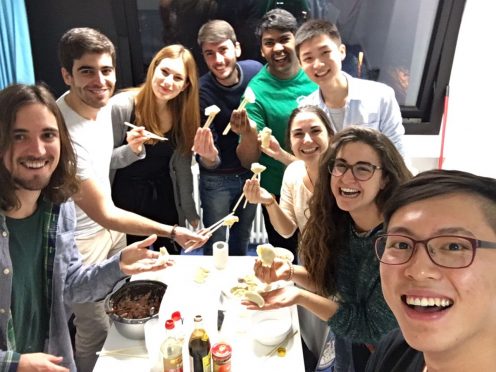
The lecture halls at TUM are a bit dated and could do with some renovation, but they’re not ranked the best university in Germany for aesthetics. TUM offers quality education with excellent, world class, research facilities. I’ve found that classes here rely heavily self-study and the exams test an understanding rather than the ability to memorize and repeat. However, based on my experience and the courses and practicals that I took, I also realized that the engineering degree offered at Stellenbosch is a lot tougher than in Munich and that Stellenbosch really is a world class University.
Transport in Munich and most of Europe, is unlike anything you’ve experienced. There are busses and trains every 5-10 minutes running like clockwork. There is no need for a car at all, you can go anywhere with public transport. Germany promotes group travel, when you travel to greater Baveria or Germany, travel passes such as Bayern-Ticket or Schönes-Wochenende-Ticket become cheaper with more people traveling together. If you have the means, get a bicycle (second hand is perfect), Munich has dedicated bicycle lanes and it’s a quick and easy way to get around. I would also suggest getting the student ISAR card, while the upfront cost of €185 is rather steep, it allows you to go anywhere on the entire Munich network at any time of the day which equates to €1 per day.
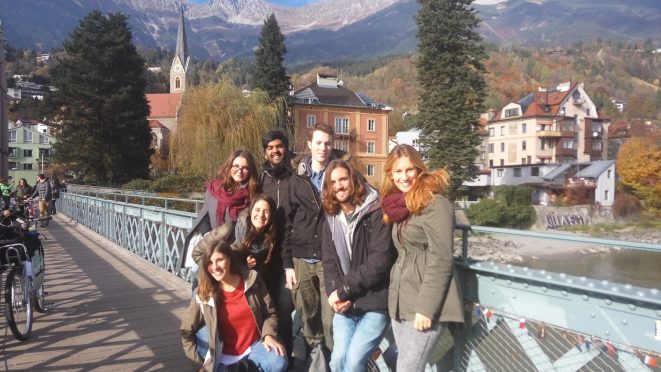
On the fun side, after meeting a bunch of new friends from all over the world we started an international events group where we would plan everything from trips to themed dinners and parties. I was also lucky enough to travel quite a bit in Europe, including to France, the Netherlands, Belgium, Austria and Italy to name a few, and if you can make this happen, it is so very worth it. Check out Flix Bus and Ryan air- they offer a bus pass to travel to any 5 European destinations for €99 and flights from as little as €10. Being in Germany during the winter semester is a breathtaking experience. With the summer heat still around at the beginning, you get to go to all the lakes and hike the alps and then when winter comes around and it’s a wonderland of snow and Christmas markets with the whole town lit up and united. I’m 25 and have never seen snow before, so for me this was a dream come true. Just make sure that you have a warm pair of snow-appropriate shoes!
Having lived in a developed country for 6 months, it’s clear that South Africa has a long way to go. Being a stereotypical engineer, I was impressed by the overall efficiency and infrastructure of Germany and some general rules and policies they have in place. I have kept an ideas journal throughout my trip and taken some home for discussion which we can hopefully contribute to improving South Africa.
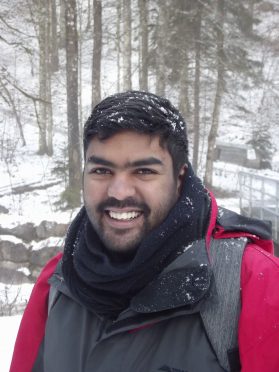
Return to Stellenbosch:
At the time of writing this entry, I’ve been home for about 1.5 months and have had enough time to experience the entire readjustment rollercoaster (yes, it was a rollercoaster). The return was both the best and worst parts of my entire trip, but I’ll explain in a bit.
My final thoughts on exchange:
My original reason for an exchange to TUM was to make use of their facilities and finish my masters there as we didn’t have the necessary equipment here. I saw it as a means to do some travelling and get to be at a world class University, a little selfish now that I think back. I, however, ended up with an unexplainable experience and a personal impact on so many people and they on me, all while giving back to the university through expertise that I have by helping them develop a product and forming a strong relationship for future endeavors.
The overall Europe experience has left me torn whether to remain in SA or taking up offers received and “settle down” in Europe. South Africa has its own unique flair and atmosphere, having the most diverse people and picturesque scenery. In the same breath, we do have a very long way to go to and need the young and inspired to uplift and invest in our country.
Auf Wiedersehen:
And I do mean Auf Wiedersehen, which literally means “until we see again”. Who would’ve thought that in 6 months you could make friends for life. To me this was family… sharing time, meals and experiences both good and bad and since I don’t believe in goodbye, Auf Wiedersehen suited me perfectly. In our Group we formed a pact, that in 3 years, at least, we would meet up somewhere in the world and have a short vocation together. I know I won’t see the majority of the people I met ever again, and it’s because of this that I finally joined social media. I conquered my aversions to Facebook and finally gave in, just my small bit to keep in touch.
My Return:
Contrary to my departing South Africa, there was an overhanging cloud of desolation. Could it be due to the winter in Germany or the fact that I’d be heading toward winter again in Cape town for my third winter in a row? (maybe it was the fact that my new found family was being yanked away at 900km/h).
Despite this, I was overwhelmed with the joy of touching down on S.A soil, there’s just an indescribable atmosphere and appreciation for being ‘home’. At the airport, I was welcomed with open arms by my girlfriend with an emoji teddy (who would’ve thought that those would become so popular), and getting home to my dog that I missed so much, but wasn’t too pleased to see me.
The weeks that followed were really trying, I went through text book depression where all I wanted to do was go back. Keeping in touch with friends there, seeing family and the most important, a BRAAI at EVERY opportunity helped me overcome this and just get back into the usual routine.
Just a heads up, when you get back, all you’ll want to do is share your stories and photos with everyone, but it seems like no one is really interested (so yeah life does go on without you), a bit of a harsh reality. So yeah, coming home was quite an experience, heart wrenching while being heartwarming, but the trip was definitely worth it and more! 13/10 would do again…

